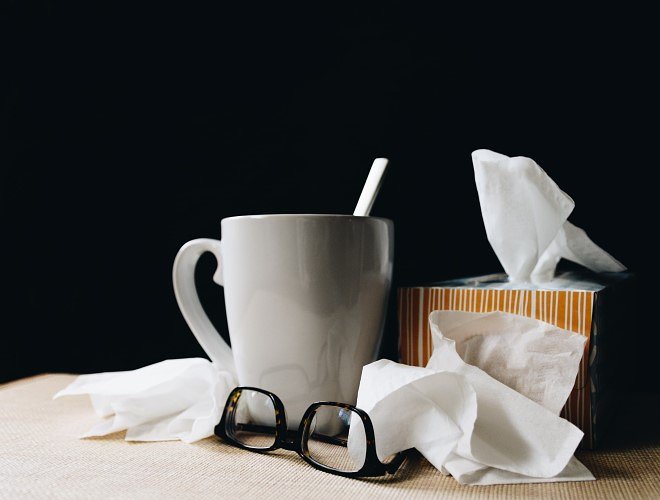Should you run, or rest when you have a cold?
For most of us, running is a form of escapism. We can shake our bodies of all the negative thoughts and feelings of the day and take a moment to just focus on our breathing and our surroundings. But is it okay to still make time for your routine run if you're down with a bad case of the sniffles? What precautions should you take?

Posted on Fri 14 Jan 2022 · by Hayley Sigrist
For most of us, running is a form of escapism. We can shake our bodies of all the negative thoughts and feelings of the day and take a moment to just focus on our breathing and our surroundings.
But is it okay to still make time for your routine run if you're down with a bad case of the sniffles? What precautions should you take?
Firstly - Check it's not COVID-19
The first, very obvious one is to make sure what you're suffering with isn't actually COVID-19, by following up with a lateral flow or, where possible a PCR test...
YOU CAN CHECK THE MAIN SYMPTOMS OF COVID-19 HERE
A lot of the symptoms of the common cold, such as headaches, cough, runny nose, fever and fatigue are similar, if not identical to the symptoms of COVID-19, so if you're unsure, it's much better to rest and tackle exercise when you're fully recovered.
The same can be said if you're a gym-goer and fan of the treadmill. COVID-19 as we all know can be fatal for those that are most vulnerable, so if you're feeling poorly, people will forgive you for staying at home and minimising the risk of infection.
However, if you've seen a doctor or taken a test and are 100% sure it is not COVID-19, the rules on running while poorly are varied...
Scale back your duration
The common cold requires the body to direct immune cells to the site of infection, recruit other cells and proteins to help fight the infection, and prevent reinfection of the same bug in the future. (Source: NHS England) It's a lot of work for your body, so really you need to gauge how tired you feel, and how severe the infection is.
If you do decide to run, its important to scale back your typical duration, frequency and intensity, to avoid burn out. Remember that your body isn't working at 100% capacity as it usually is, and it's okay to keep the pace easy and stick to a shorter distance if it means you have a fighting chance of getting back to optimum health.
It is by no means a reflection on your performance, we all get sick from time to time and cannot be expected to ace it every time.
Remember runners, it's a marathon... not a sprint!